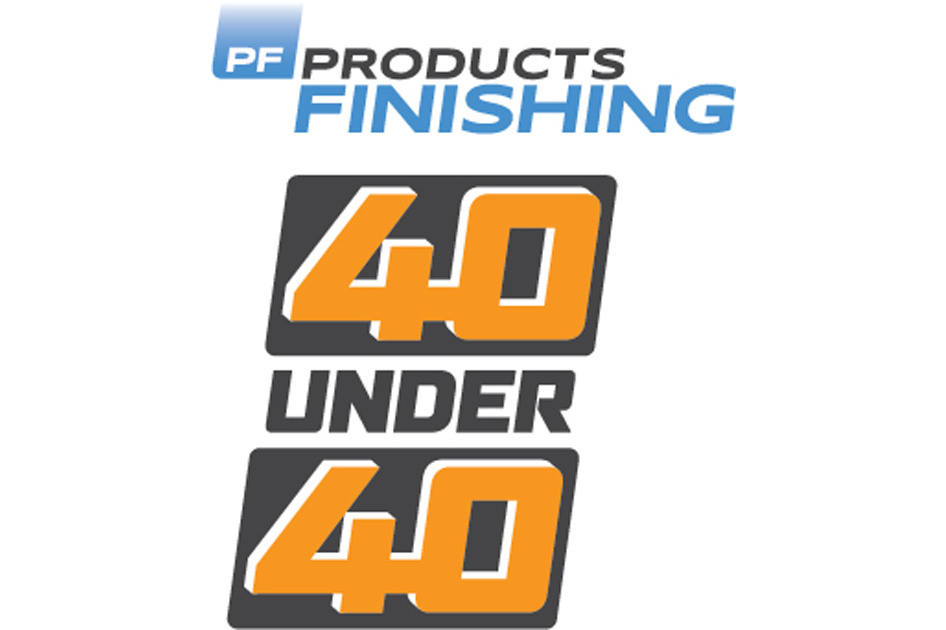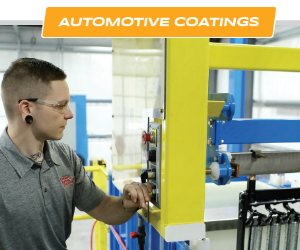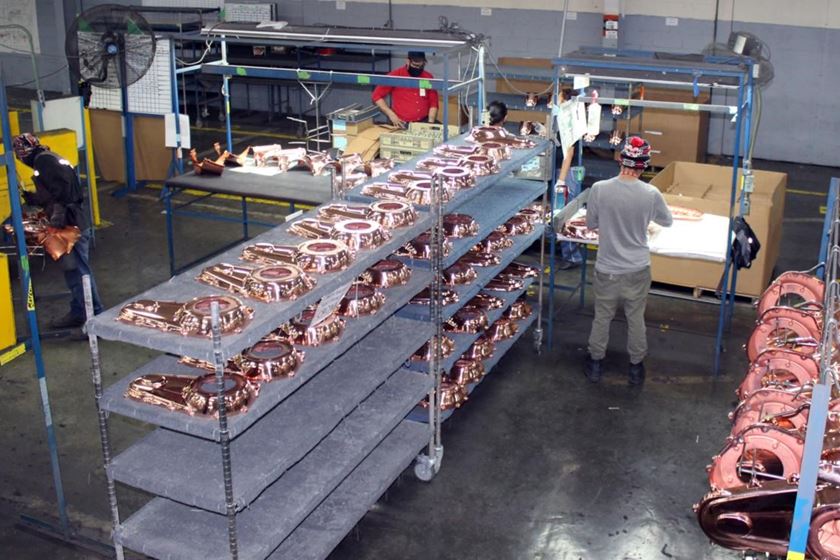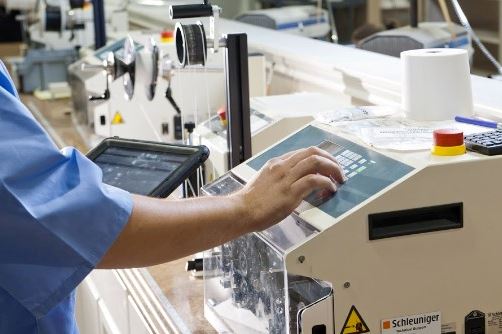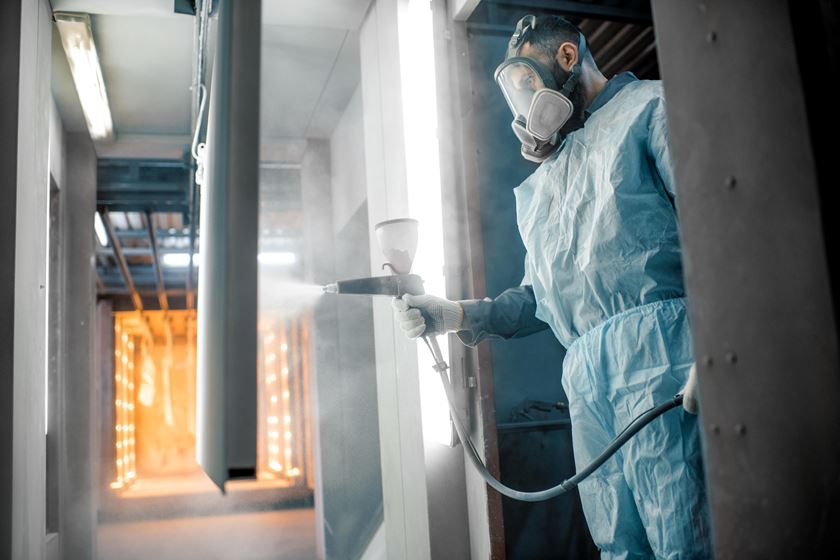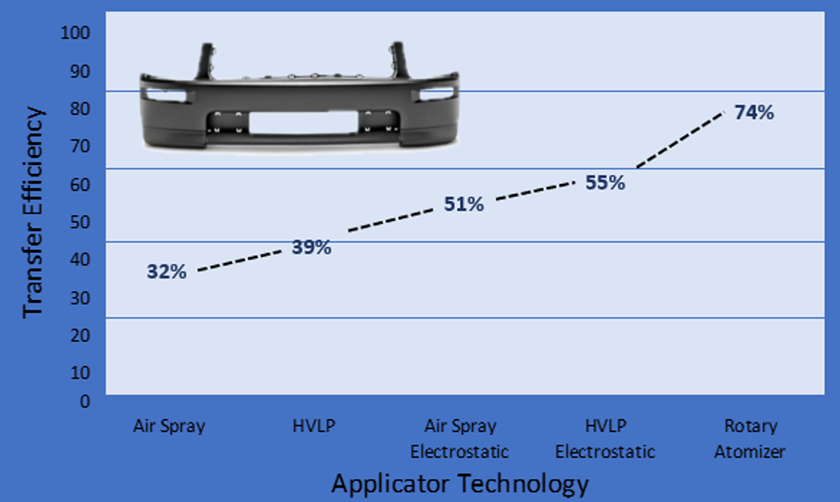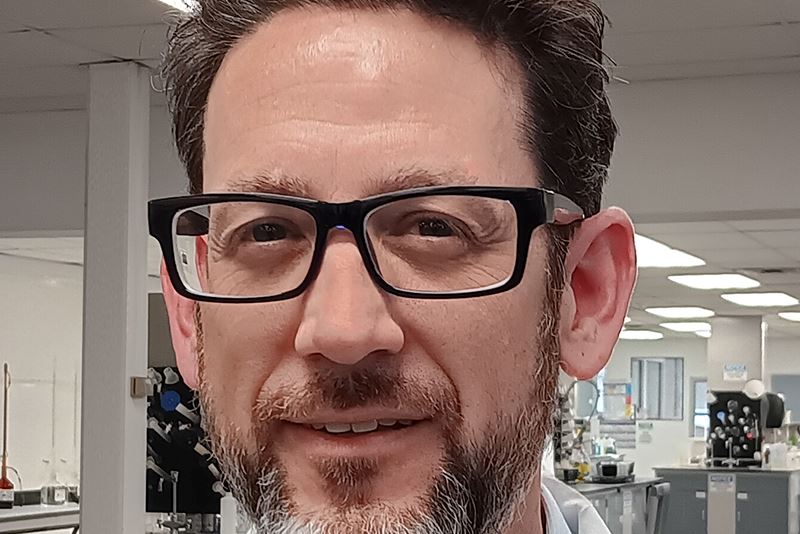A Conversation with Shelley Bausch, Carlisle Fluid Technologies
Shelley Bausch became president at Carlisle Fluid Technologies in late 2017 after a career at PPG, where she last served as vice president of global industrial coatings.
Shelley Bausch became president at Carlisle Fluid Technologies (CFT) in late 2017 after a career at PPG, where she last served as vice president of global industrial coatings. Bausch also worked at Dow Corning in a variety of marketing, operations, commercial and business leadership positions which included an assignment in Shanghai, China. We caught up with her to ask about completing her first year at CFT.
PF: What has occupied the most of your time the first year?
SB: There have been three priorities driving my time this past year: our people, getting our fundamentals solid and driving new strategic direction to build a sustainable growth business. In any business, it’s all about the people, and the first priority has been on building an engaged team focused in one simple direction—that is to serve customers, deliver quality in everything we do and work together to leverage the great capabilities CFT has globally.
PF: How has your approach changed from being a VP for many years?
SB: Regardless of my job title, I have always seen my job holistically and taken ownership and responsibility to create a sustainable business, whether that is as a GM or VP or now, as President. I think one difference, though, as president is that I feel ultimate responsibility for CFT employees around the world.
PF: What is the biggest difference going from the coating to the equipment side of the business?
SB: It’s actually been quite interesting as the business is the same. The customers are the same. Who we talk to and what we talk about is different. But actually, therein lies the opportunity. Now that I can see both sides, I see incredible opportunities to build the business and serve customers better.
PF: What’s the best piece of advice you were given?
SB: Dave Jones was one of my early bosses and mentor. He told me as he was retiring, “Make sure when you go home every night that you can look in the mirror and tell yourself that you did the right things, made the right decisions and were good and true to people. And if there ever comes a day that you can’t do that, it’s time to make a change.”
PF: Biggest goals for CFT for 2019?
SB: In 2019 we’ll continue on the three priorities—people, fundamentals, strategy—which will include continued focus on our operational excellence in supply chain to better serve our customers. The goals we have in place will advance us towards our vision—to inspire customers with solutions—and we’ll move towards that with a refined product portfolio and new product development, a global orientation to customers and our capabilities and partnerships with others in the value chain, like materials suppliers, to make that happen.
PF: What will CFT look like in five years?
SB: We have a five year vision for CFT and we will be a different company, serving more markets with solutions for our customers, bringing innovation to how things are done. We are spending time looking at megatrends, like digitalization and shared economies and understanding potential impacts on the markets we serve. If you think about what the industry is going to look like in five years, doing more of the same will be a losing proposition. The team is excited about the prospect to be a part of the technology and market shifts that are coming.
PF: What was your first job and what did you learn from it?
SB: My family started a deli/ice cream store and my first job as a teenager was to help manage it. On a very small scale, I learned about customers, inventory, working capital, quality, people management, employee challenges and making a profit. My first “real” job as an adult was at Dow Corning, starting in a technical marketing job. It wasn’t the job itself but the company that gave me foundational lessons I have carried through the rest of my career. I was blessed early on to work for a company that from day one was global, collaborative, multi-functional, growth-oriented and focused on developing future leaders. I had true leaders as role models to learn from. I learned not only how to be a good team member, but how to lead. I learned how to be innovative, at the same time as learning the importance of having a process to make that sustainable.
PF: What leadership traits have helped you along the way?
SB: Some are learned, some are skills. At this point in my career, I don’t know which are which! But inherently, I believe a leader must have vision and a clear ability to balance strategy and execution (and the knowledge that both are important). Having vision means a lot though, and these are some of the things that have helped me: simplifying complex situations, seeing patterns in seemingly unconnected events, foreseeing events that can impact the bottom line before they do, asking questions that challenge the status quo and encouraging new business ideas and making decisions with one eye on the big picture (pragmatic idealism). Along with that, my basic belief that people make the difference is a big part of what has helped me. I believe that encouraging the heart is the difference between a good company and a great company. And that flows right into the concept of servant leadership—that my job is to enable everyone else to do theirs most effectively. That applies to my direct team as well, but in that case not only do I work to enable them, but I also try to always staff my teams with people that are better than I am! Then I keep learning too.
PF: If you could trade jobs with anyone for a day, who would it be?
SB: A yoga instructor. I am motivated by making an impact and making a difference to people. Yoga is so good for the mind, body andsoul that when I teach yoga, I know I am contributing to someone at the most foundational level. To have the ability to do that all day long would be something I’d like to do. And it’s about as different from a day in the life of a business leader that it would be a challenge!
PF: Where would we find you on a typical Saturday?
SB: Hiking, doing yoga, coffee in the morning and wine at night.
PF: Best way to keep a competitive edge?
SB: Stay grounded; don’t become arrogant/over-confident. I have watched so much arrogance through my career—and I’ve watched it destroy businesses. Stay a little on edge—always think about what you could do better. Always remember there are people smarter than you that are trying to beat you. Don’t be afraid of change—embrace it and lead it. Make mistakes, go fast, take risks and learn.
PF: Personal heroes?
SB: This is a tough question for me. People throw the word “hero” around a lot. To me, a hero is someone who is willing to sacrifice themselves for the greater good—someone who helps others simply because it should be or must be done and because it is the right thing to do regardless of the personal impact. A hero is someone who puts others before themselves—will sprint into danger even though they may pay dearly. When I think of that, I think of everyday heroes in law enforcement and in our military and am in awe of what they do. And then I think of people like Nelson Mandela or Martin Luther King Jr. But I also take this question more personally. My family had very humble beginnings, and when I think about what my grandparents and parents have risked and sacrificed to give me and my siblings a good home, an education and an opportunity to succeed, then they become my true heroes. They were role models of sacrifice of themselves for us, of themselves for our country as they served in the Army and Navy and they raised us with an attitude of “do good, be good” so that we could do the same in our own small way going forward.
PF: How do you motivate people?
SB: Everyone wants to have a purpose—to be a part of something that is bigger, that they can impact. Make it available to them and let them know you care about/value them at the same time you care about/value the business. It’s really pretty simple. I believe in encouraging the heart and that nothing is impossible. Create an engaged team, give them hope and a strategy and everyone wins.
PF: How do you motivate yourself?
SB: I am motivated by impact, so when I see others growing, personally or professionally and know that I’ve maybe had some part in that growth, it motivates me to keep going. But of course, sometimes I get tired—so I am very disciplined about my work-out routine. Yoga, running and hiking all help. And if that doesn’t work, I just remember that I have a purpose in life. I have been blessed with talents and capabilities and it is my duty to use them to help others.
PF: Three greatest passions?
SB: My problem is that whatever I am involved with, I am passionate. Which is both a blessing and a curse. If I had to pick three, my first is my passion to be a good mom. My kids mean the world to me and are my first priority. Second, I am passionate in the connection among mind, body and spirit and God’s power in my life. And third, I am driven by impact—making an impact in what I am asked to do and on the people I work with.
PF: Biggest management myth?
SB: The myth that there is “one right way” to manage. When you lead people, you have two huge variables—the context of the business world and the fact that you are working with human beings! Learning one way to manage and thinking that will apply no matter what situation the business is in or who is on your team is insanity! You can think of it as the need to have situational leadership skills—being able to flex to the situation you are faced with. I just call in the ability to see the big picture, make the complex simple and use the approach that fits.
PF: What advice would you give to yourself 10 years ago?
SB: I am too old to think about only 10 years ago. But if I think back 15 or so years, I would have liked to tell myself the following:
- Always remember that you are surrounded by good people—connect, listen, learn and know that everyone has something to offer, personally and professionally.
- Life begins at the end of your comfort zone; to really grow, you have to make change happen in your own life and it is good! Change brings opportunity.
- Life requires resilience; be ready for life to happen. Maybe it will be challenges with your family, maybe it will be that you are faced with people that are undermining you in your work. Be resilient, stay true to yourself and always stay faithful.
PF: Word that best describes you:
SB: Passionate. I had to ask my family on this one. It was a tie between passionate and vibrant.
About Shelley Bausch
Family: My husband Greg is a chemist and we worked together at Dow Corning and at PPG, and he is still working. Our son is 24 and working in finance. Our daughter is 22 and is in health care.
Favorite hobby: Anything outside.
Favorite movie: As a family, we have watched the “Lord of the Rings” series multiple times. At Christmas time, it is definitely “It’s a Wonderful Life.”
Favorite book: “Doomsday Book” by Connie Willis, “The Pillars of the Earth” by Ken Follet and I admit to loving Harry Potter!
What’s playing in your car CD/radio: Love Christian Rock — it’s inspiring, humbling, comforting and motivating.
RELATED CONTENT
-
A Current Affair: Examining the "No Amperage" Phenomenon
If you are performing a coating process that requires the use of a rectifier, you may have experienced the "no amperage" problem. Here's a look at the phenomenon and some solutions…
-
Coating Thickness Measurement: The Fundamentals
A review of available test methods, common applications and innovative instrumentation...
-
Is Your Electroplating Waste Hazardous?
Some that bears precious metals is, and there are a host of regulations to consider when recycling.





